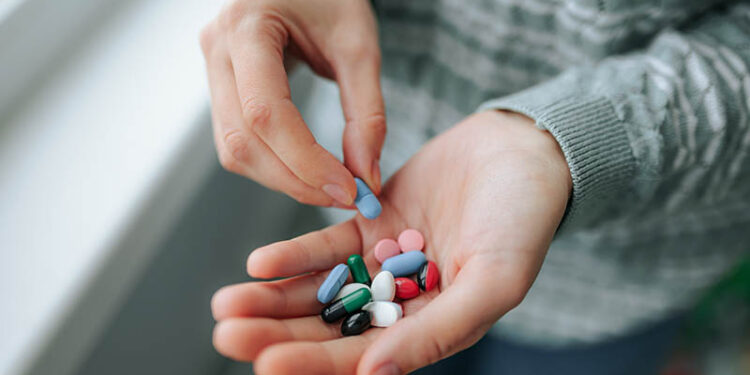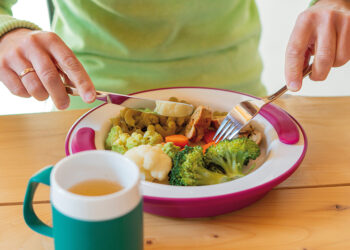Dieser Beitrag ist auch verfügbar auf:
Deutsch
Why the routine of “crushing tablets” should be reconsidered for people in need of care
Many nursing and care teams reflexively reach for a mortar to prevent swallowing in cases of dysphagia. However, new clinical data from the Karl Landsteiner Private University in Krems puts this routine to the test: in stroke patients with dysphagia, it was shown that whole tablets, administered with soft food such as applesauce, often reach the stomach more safely than previously crushed preparations. Crushed dosage forms left significantly more residue in the throat – which can interfere with the absorption of active ingredients and promote complications.
Safer: swallow whole
Around 75% of those affected by a stroke suffer from them: dysphagia. On behalf of the Department of Neurology at Tulln University Hospital, Karl Ladsteiner Private University has now investigated which method of administering tablets is better: crushed? Or swallowed whole with soft foods such as apple sauce? “We wanted to know what actually happens when people with stroke-related swallowing disorders swallow whole or crushed tablets,” says Michaela Trapl-Grundschober, speech therapist and scientist at the Department of Neurology. “It is often assumed that crushed medication is safer – but our results show that this is not necessarily true.”
The result: all tablets swallowed whole reached the stomach without any signs of dangerous swallowing. Crushed forms, on the other hand, led to significantly more residues in the throat, especially in the area behind the tongue – a space where substances can easily accumulate and remain unnoticed for a long time. Residues in the throat could impair the absorption of the active ingredients and promote complications.
Even the smallest tablet tested (8 mm) performed better in terms of swallowing safety and efficiency than its crushed version. Although the largest tablet remained at the base of the tongue more often, it was perceived and swallowed safely with another spoonful of applesauce. This means that whole tablets with soft pulp can be safely administered for mild to moderate swallowing disorders – provided that the individual swallowing ability has been tested by a specialist beforehand.
Important: query carriers such as yogurt & co. first
This study is of considerable importance for stroke care, as the safe and reliable administration of medication is of central importance in the early treatment phase. This can help to avoid complications, optimize dosages and improve the effectiveness of the therapy.
This means a paradigm shift for practice in home care, day centers and inpatient settings. Routinely crushing solid medicines is not safer per se and should not be done automatically. A structured approach is crucial: First a qualified dysphagia assessment, then the appropriate ingestion strategy.
The working group also points out a well-known but often overlooked detail: carrier media such as applesauce or yoghurt are often used, but can influence the absorption of individual active ingredients – another reason why standardized diagnostics and clear agreements between nursing, speech therapy, medicine and pharmacy are necessary instead of blanket crushing.
About the study by Karl Landsteiner Private University: https://www.kl.ac.at
Author: Anja Herberth
Chefredakteurin
















